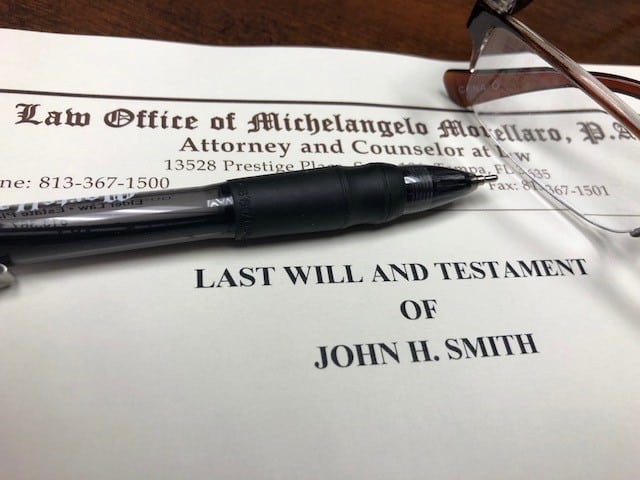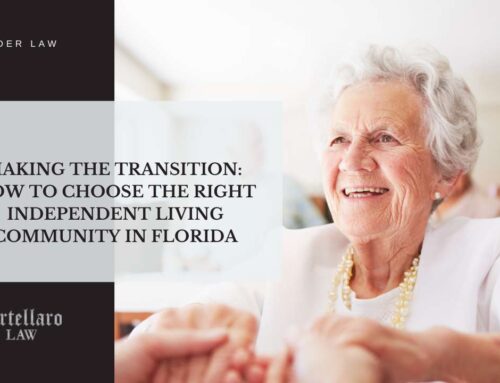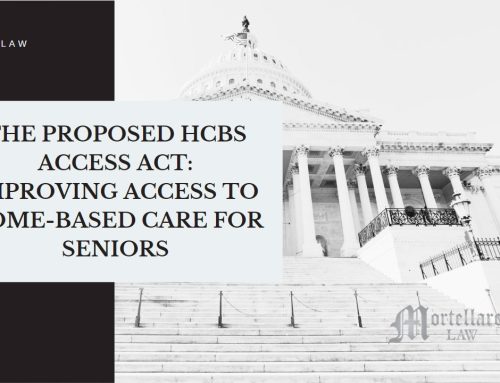Elder Law | A family member dies, and you are named in the will to serve as the personal representative. In Florida, that is the name of the role of the person who is assigned to distribute the deceased’s money and possessions in accordance of the will or the laws of that state if there is no will. In many states, this role is called the executor. By either name, this role comes with great responsibility.
In basic terms, the personal representative navigates the probate process. He or she must identify all the assets and debts, ensure that the estate pays all of the final expenses and debts, then distributes the remainder to beneficiaries. The Florida Bar has a well-written document that guides personal representatives through the responsibilities and process.
In reality, the personal representative will likely deal with many people: funeral directors, state or federal agencies, bank personnel, attorneys, financial advisors, mortgage companies, social media companies, hospitals, nursing homes or assisted living facilities, and, of course, family members and all that potential drama.
Personal representatives can be compensated from the estate for this role. Depending on the estate, it could even be substantial, but they can also be sued. Let’s take a look at some of the hurdles and pitfalls that might lie ahead:
Locating assets and creditors
Hopefully, while the person was alive, he or she shared with you where they have important documents, such as the original current will, other estate planning documents (a trust, for example) and a list of accounts. Folks from older generations usually put these items in an in-home safe or lockbox, a filing cabinet or in a bank safe deposit box. In today’s digital world, many important pieces of information may be located online or in password-protected files. You may have to search for usernames and passwords to obtain some items. If someone tells you they are naming you as the personal representative, don’t make the mistake of brushing it off. Have a detailed conversation about where things are, and how to obtain them quickly.
Maintaining control of the assets
It’s not unusual when someone dies for family members and friends swoop into the residence and take things. They’ll tell you – or maybe not – that Mom wanted them to have this particular painting or piece of jewelry, and it’s never seen again. Secure the home as quickly as possible and round up property, such as cars, RVs, boats and such that might be located off-site. You are responsible for safeguarding the assets until distribution.
What to do with homes and property
Unfortunately, some people leave behind a house or piece of land to multiple beneficiaries and don’t provide enough instruction. What if one person wants to sell, but another wants to buy out the other parties? What if no agreement can be reached? If there is a sale, who decides on the price to sell, which fixups will be done, what commissions/fees will the estate pay? You might need the help of real estate agents, financial advisors, your probate attorney, or ultimately the probate judge. Remember, the personal representative is responsible for ensuring that the insurance is maintained and that taxes are paid from the estate.
Paying creditors in the proper order
Don’t get caught up in paying off the deceased’s bills right away. Florida probate laws create a three-month period for creditors to file a claim with the county clerk’s office. Probate rules designate these creditors into “classes.” The Class 1 creditors (you as the PR, and the probate attorney, for example) get paid first. Class 2 creditors are next, and so on down the line. The credit card company may not see a penny if the estate funds run out. If you paid them ahead of another valid claim, you could be held accountable. And don’t pay one beneficiary ahead of another. Pay them all at the same time to ensure the accounting stays on track.
Putting estate assets at risk
Probate can take just months or stretch on for years. No matter; resist the notion that you can grow the assets by investing. Your job as PR is to protect the assets until distribution, so if you play the stock market and lose, you may be liable. Talk to your probate attorney and financial advisor to properly handle estate funds.
The Law Office of Michelangelo Mortellaro works with probate clients every day, helping them navigate the procedures and avoiding the pitfalls that personal representatives face. If you have been named the personal representative and must begin the probate process, give our office a call. Initial consultations are always free.




